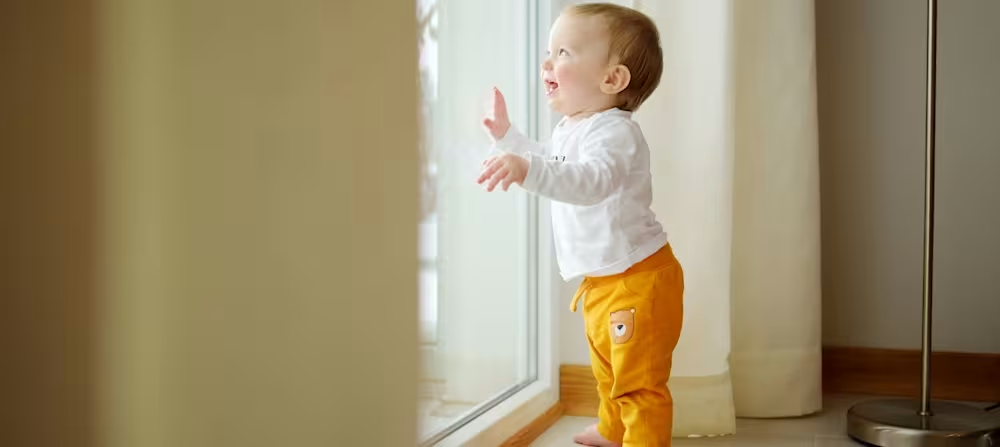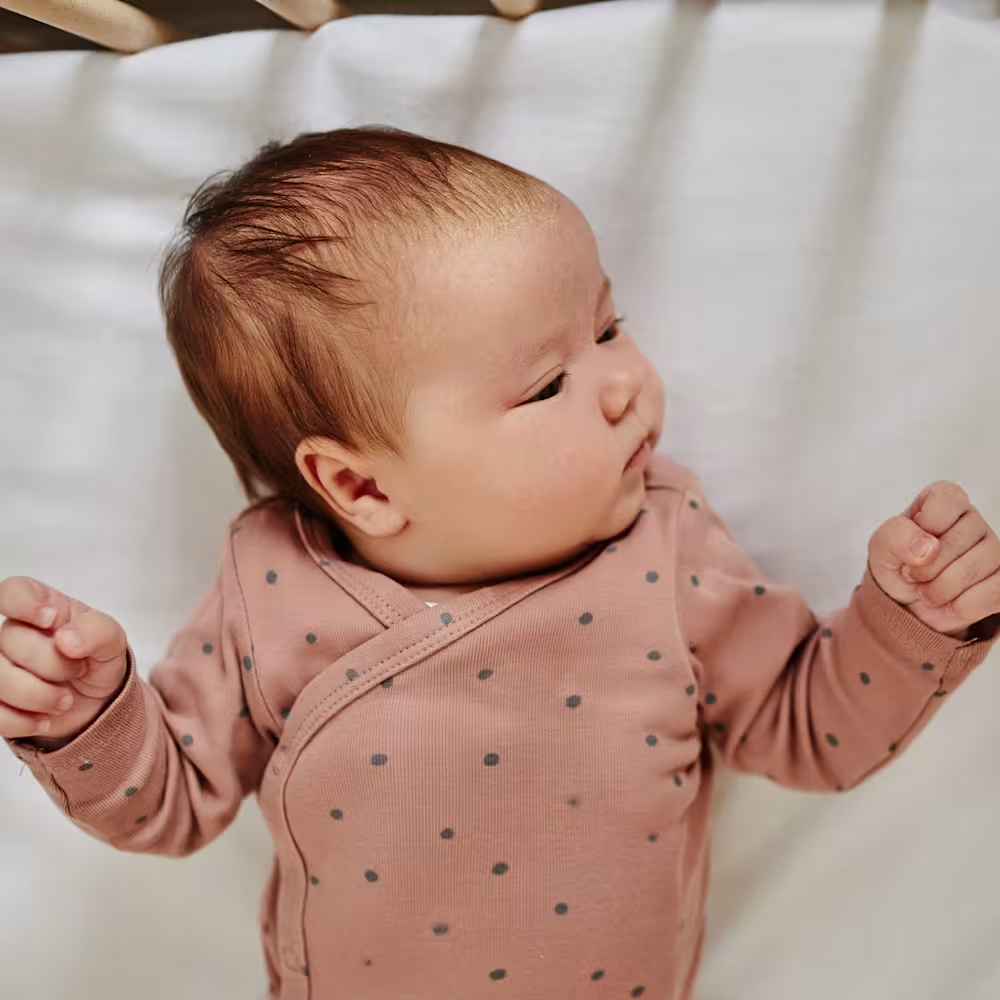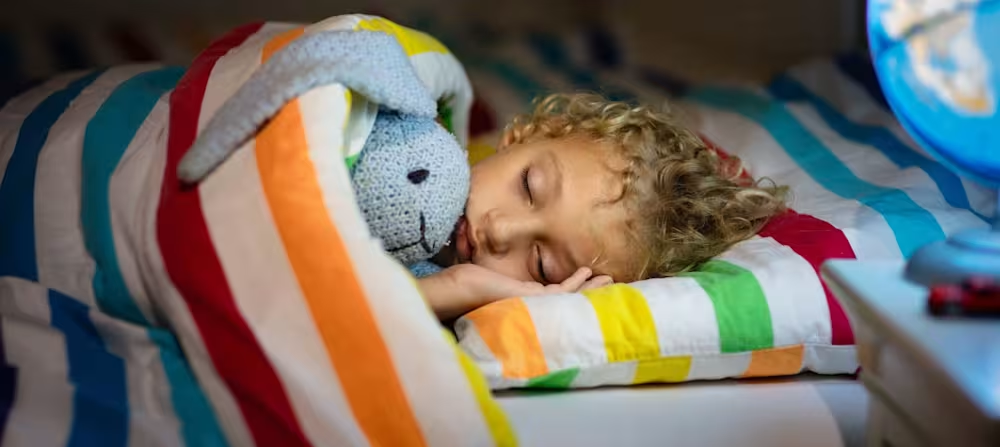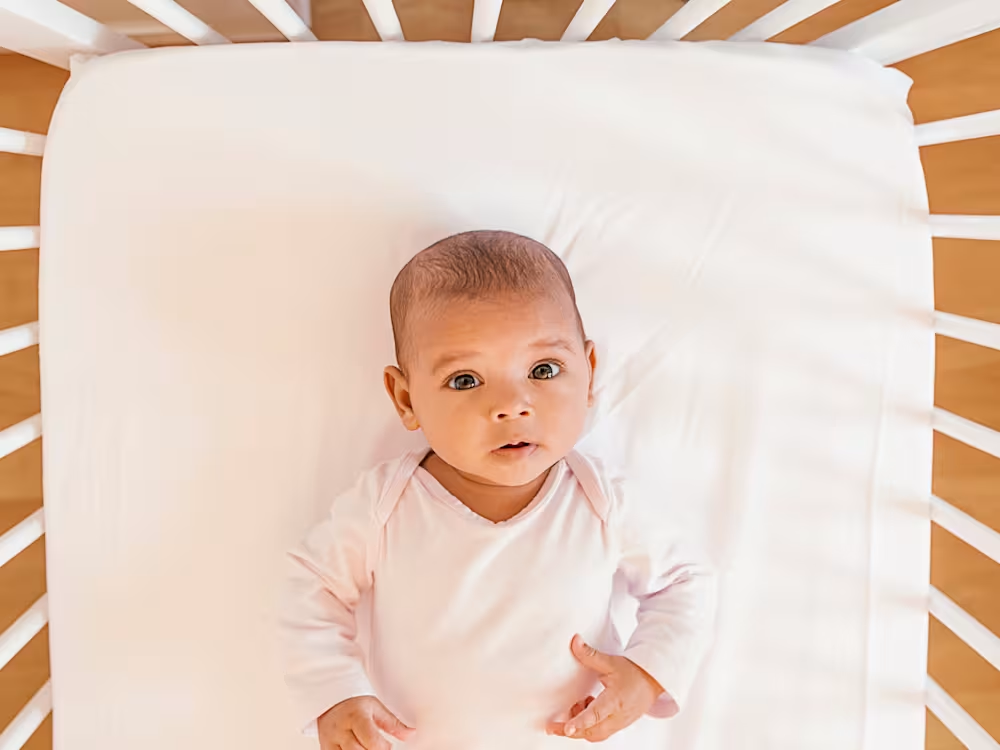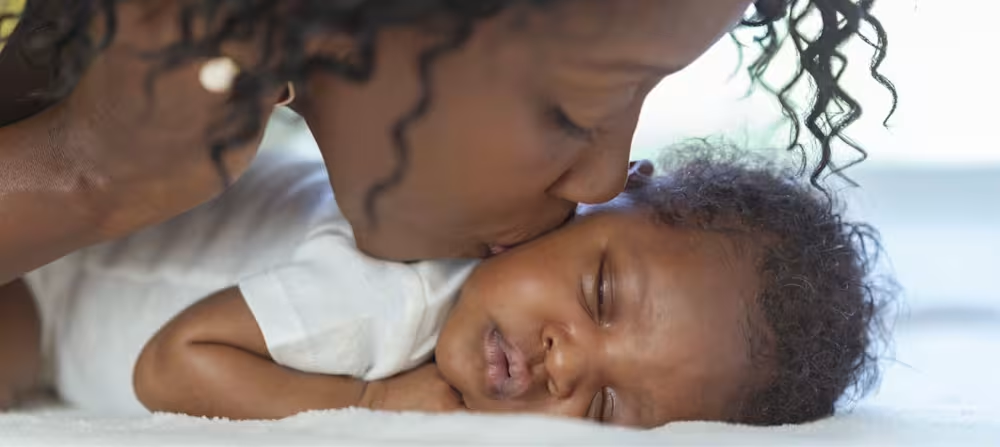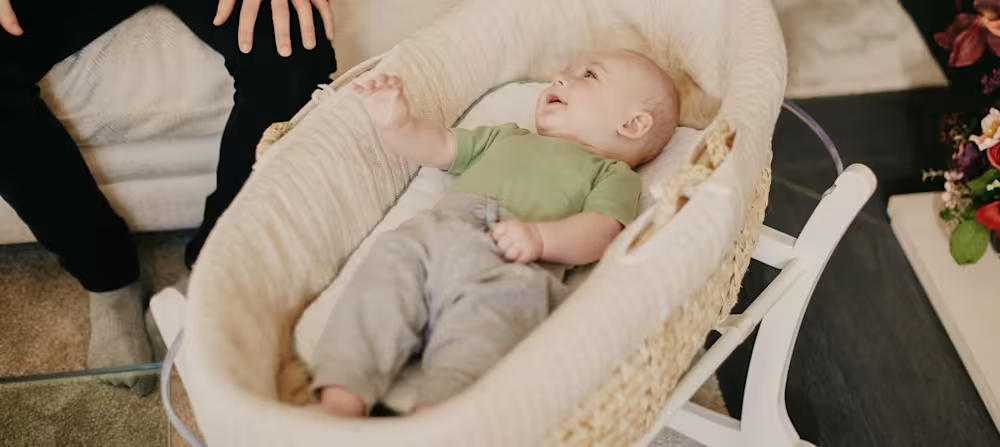Why does your baby laugh and smile in sleep?
Updated Oct 16, 2025

It doesn’t get much more adorable than a smiling, sleeping baby. If you’ve ever looked over at your baby while they’re sleeping and noticed a smile or even a little chuckle, you may have wondered, why do babies laugh in their sleep? Because babies under 6 months likely don’t dream, their sleepy smiles and giggles are probably more of a reflex than anything else. That doesn’t make them any less heartwarming, though.
In this article, we’ll explain theories on why babies laugh and smile in their sleep and we’ll explore the rare times when laughing during sleep might be cause for concern.
Is it common for a baby to laugh and smile in sleep?
If you notice your baby laughing or smiling while asleep, rest assured it’s very common. According to the American Academy of Pediatrics [], most babies smile in their sleep before they smile while awake, though the reason behind that isn’t entirely clear. Most likely, they’re responding to an internal impulse or reflex.
When awake, many babies smile socially around 2 months old, around the time they begin reaching other like lifting their heads during tummy time and bringing their hands to their mouth. Some babies take longer to reach each milestone, so don’t worry if your 2 month old isn’t there quite yet. When it comes to your , you can expect it around 6 months, though it may be later for some babies.
Note that smiling and laughing during sleep aren’t considered social skills. However, they are adorable and may give you a preview of what’s to come during wake times if your little one hasn’t reached those milestones while awake.
Should I be concerned if my baby smiles while sleeping?
When you have a new baby, it’s normal to worry. Even something as innocuous as a smile or laugh might have you wondering what’s normal. In the vast majority of cases, no, you shouldn’t be concerned if you notice your baby smile in sleep.
There are some cases, however, where smiling and laughing during sleep could be concerning. For example, uncontrollable laughing fits could be a sign of a rare type of seizure called a gelastic seizure []. (You can read more about them below.) If you’re ever concerned about your baby’s health or well-being, contact their healthcare provider.
Reasons your baby is laughing in sleep
Why do newborns laugh in their sleep? Scientists aren’t sure. Though the answer isn’t completely clear, there are many plausible and benign explanations.
Active Sleep
Babies likely experience dream-like activity during sleep. Newborns spend about 50% of their time in REM, a phase linked with dreaming in adults. However, the exact nature of infants' dreams remains uncertain, as their cognitive and emotional experiences differ significantly from those of adults. One small study found that babies tend to smile during active sleep or rapid eye movement (REM) sleep []. It also found that smiling during sleep is common in healthy newborns. Another study found that babies begin to smile in sleep as young as a few hours old. []
During REM sleep, you might also notice your baby making other movements and facial expressions, such as twitching, sucking, or even frowning. . Adults are typically very still during REM sleep, as their muscles are relaxed. However, babies are active during REM sleep [], so you’ll likely notice your baby making all sorts of little movements while in active sleep.
Reflexes
Babies have a wide set of involuntary reflexes, like the Moro (or startle) reflex which causes your baby to suddenly extend their arms and legs when they hear a loud sound. Babies even reflexively smile in response to stimuli before they’re born [].
It makes sense, then, that similar to the Moro reflex when your baby hears a loud noise while they’re sleeping they might smile or laugh as a reflex while they’re asleep. The more they practice, the more they develop the muscles they need to smile and laugh voluntarily while awake.
Mimicking facial expressions
Studies have found that babies imitate adults’ facial expressions [] starting in their first days of life. These early smiles and laughs can be part of their development as they get ready for their first real social smile, which often happens around 2 months old. Every time they smile or laugh in their sleep, they further develop their facial muscles. The older your baby gets, the more you might see them mimicking facial expressions.
When to seek professional help
In the vast majority of cases, smiling and laughing during sleep is completely normal and nothing to worry about. In rare cases, babies who smile or laugh in their sleep might be experiencing gelastic seizures []. These are seizures that cause people to laugh uncontrollably (sometimes called laughing seizures) and are associated with a rare form of epilepsy [].
These types of seizures can occur in babies. In fact, in 1 out of 3 people with gelastic seizures, they start in infancy, often around 10 months old. However, these seizures are exceptionally rare, occurring in only .005% of people. (4) If you’re just noticing the occasional sleepy grin or chuckle, you likely don’t need to worry.
Signs that your baby might be having gelastic seizures include:
Laughter happening as your baby is falling asleep, as opposed to the typical smiles and laughs that happen during REM sleep
Being woken up from sleep during the laughter and then falling back asleep
Laughing fits that last 10 to 20 seconds
Laughing fits that you cannot stop
Laughing fits or other unusual twitches and movements that occur while your baby is awake
Though smiling and laughing during sleep is part of normal and healthy development for most babies, contact your baby’s healthcare provider if you are concerned or if their laughing interferes with their sleep.
Takeaway
Almost all babies smile and laugh in their sleep. Likely a reflex and a part of normal development, this sleepy giggling is often a precursor to their first real smile (around 2 months) and their first real laugh (around 6 months).
Babies may experience dream-like activity, and they may smile or laugh and make other movements during their active sleep stages. Their smiles might also be a reflex and a natural mimicry of facial expressions.
In most babies, smiling and laughing during sleep is a normal part of healthy development. Rarely, laughing fits during sleep can be a symptom of a gelastic seizure.
Share article:
Note: The content on this site is for informational purposes only and should not replace medical advice from your doctor, pediatrician, or medical professional. If you have questions or concerns, you should contact a medical professional.
9 Sources
Share article:
